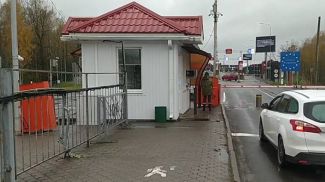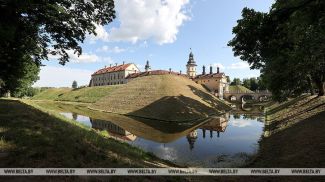MINSK, 17 December (BelTA) - More than 50% of Belarusians view positively the decision to hold a nationwide referendum on the constitutional amendments, Sergei Musiyenko, director of the EcooM think tank, told BelTA as he commented on the results of the opinion poll “Belarus. A Vision of the Future” conducted by the Institute of Sociology at the National Academy of Sciences of Belarus.
More than 50% of Belarusians have a positive attitude to the forthcoming referendum (32.1% take a positive view and 18.7% a rather positive view on the referendum); 18.9% of respondents are neutral about it, 4.9% of the pollees view it rather negatively and 4.7% of those polled view it negatively; 16% were undecided and 0.7% gave no answer.
According to Sergei Musiyenko, such a positive attitude to the referendum was expected, and this was partially the result of the successful awareness raising campaign. “We have clearly explained the need for a referendum. Dialogue platforms throughout the country did their job. In other words, we have communicated our position to the people. In fact, the date of the referendum has not been announced yet, but people are aware of it. And this means that their attitude is going to improve as the referendum will be drawing closer, because now people are more busy getting ready for New Year celebrations,” Sergei Musiyenko said.
According to him, respondents did not shy away from taking part in the opinion poll. This is to some extent a reflection of the public sentiment. “Both the conduct of the opinion poll and the interest of the pollees in the results show that people want to know what the rest of the country thinks about it. It is very pleasant”, he added.
In the run-up to the national referendum, the Institute of Sociology at the National Academy of Sciences of Belarus jointly with the EcooM think tank conducted the public opinion poll “Belarus. A Vision of the Future”. The survey was carried out from 15 November to 4 December 2021 and polled 10,217 respondents, mainly economically active population.
The sampling was multi-stage, stratified (by region and type of settlement), with quotas by sex and age. The study covered all regions of Belarus, Minsk, 52 districts (including 9 districts of the capital city), almost 350 organizations and enterprises in various sectors and of different forms of ownership.













